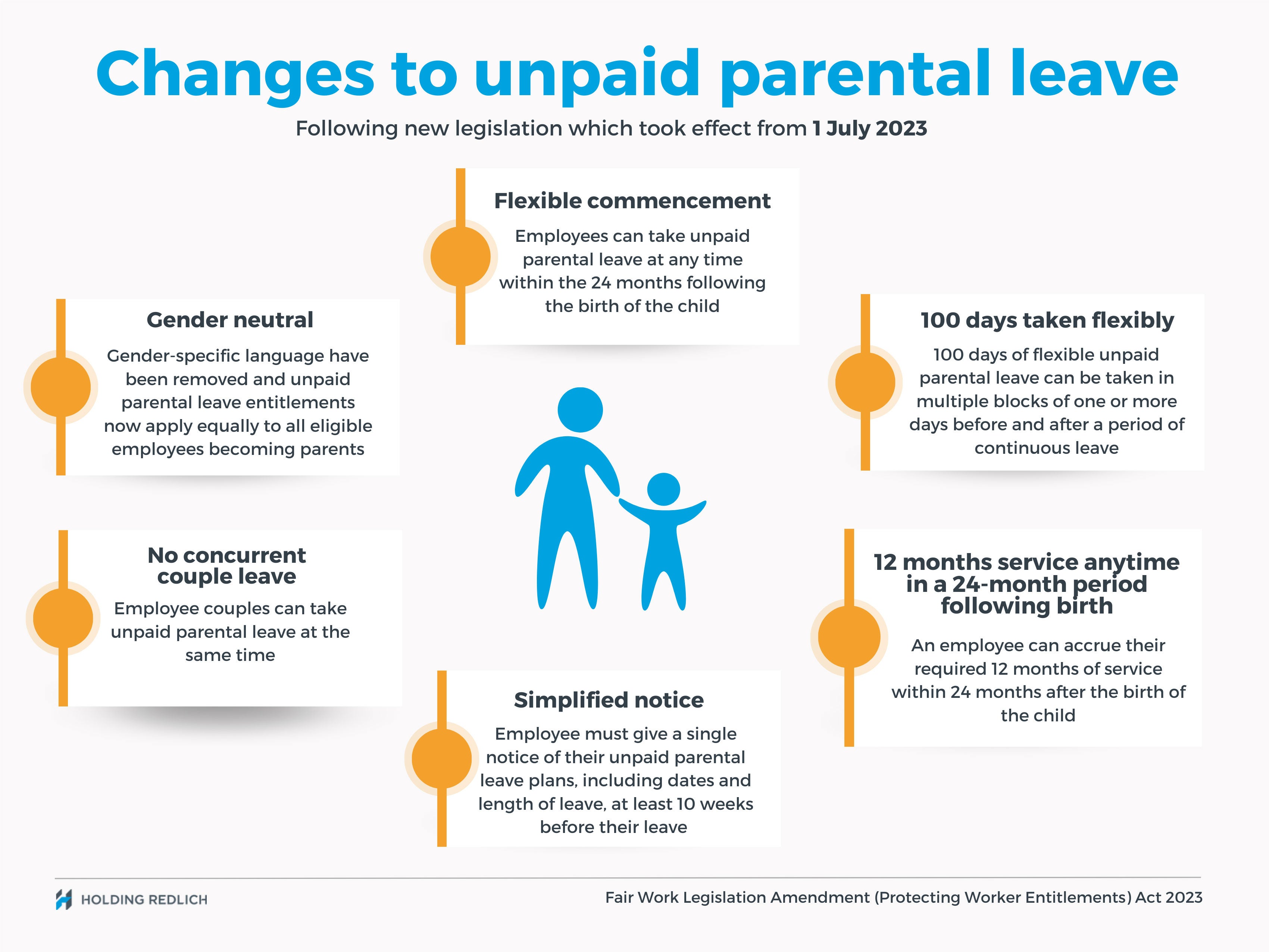We revisit the recent changes to unpaid parental leave that came into effect in July and outline measures employers can take to comply with the revised legislation.
What are the key changes?
- The legislation is now gender neutral: References to ‘maternity leave’ are replaced with ‘parental leave’.
- Flexible commencement: Unpaid parental leave can now be taken at any time within 24 months after the birth of the child, whereas before, it was restricted to 12 months after birth.
- 100 days of flexible leave: Unpaid parental leave must usually be taken in one continuous period. Under the revised legislation, employees can now take up to 100 days of leave outside of this continuous block. Leave can be taken anytime in the 24 months following the birth of the child or six weeks before the anticipated birth of the child. Notice requirements apply.
- Concurrent couple requirement removed: Employee couples can now access unpaid parental leave regardless of the amount of leave the other member of the couple has taken.
- Simplified notice requirements: Notice requirements are now streamlined. Employees are now required to provide one notice 10 weeks before the anticipated birth of their child.
- 12 months service anytime in a 24-month period following birth: The 12-month service requirement can now be satisfied in the 24-month period following the birth of the child.
What actions should you take now?
- Review and update policies and procedures to reflect the new requirements.
- Consider how the changes to unpaid parental leave requirements interact with the government's paid parental leave scheme and any additional discretionary paid parental leave you provide.
- Review employment contracts to ensure compliance with the new requirements.
For more information about parental leave changes, read our previous article here or refer to the Fair Work Legislation Amendment (Protecting Worker Entitlements) Act 2023, Paid Parental Leave Amendment (Improvements for Families and Gender Equality) Act 2023 and Fair Work Legislation Amendment (Secure Jobs, Better Pay) Act 2022.
If you have any questions about this article or need assistance with reviewing your policies and employment contracts, please get in touch with a member of our team below.
Disclaimer
The information in this article is of a general nature and is not intended to address the circumstances of any particular individual or entity. Although we endeavour to provide accurate and timely information, we do not guarantee that the information in this article is accurate at the date it is received or that it will continue to be accurate in the future.
Share this
